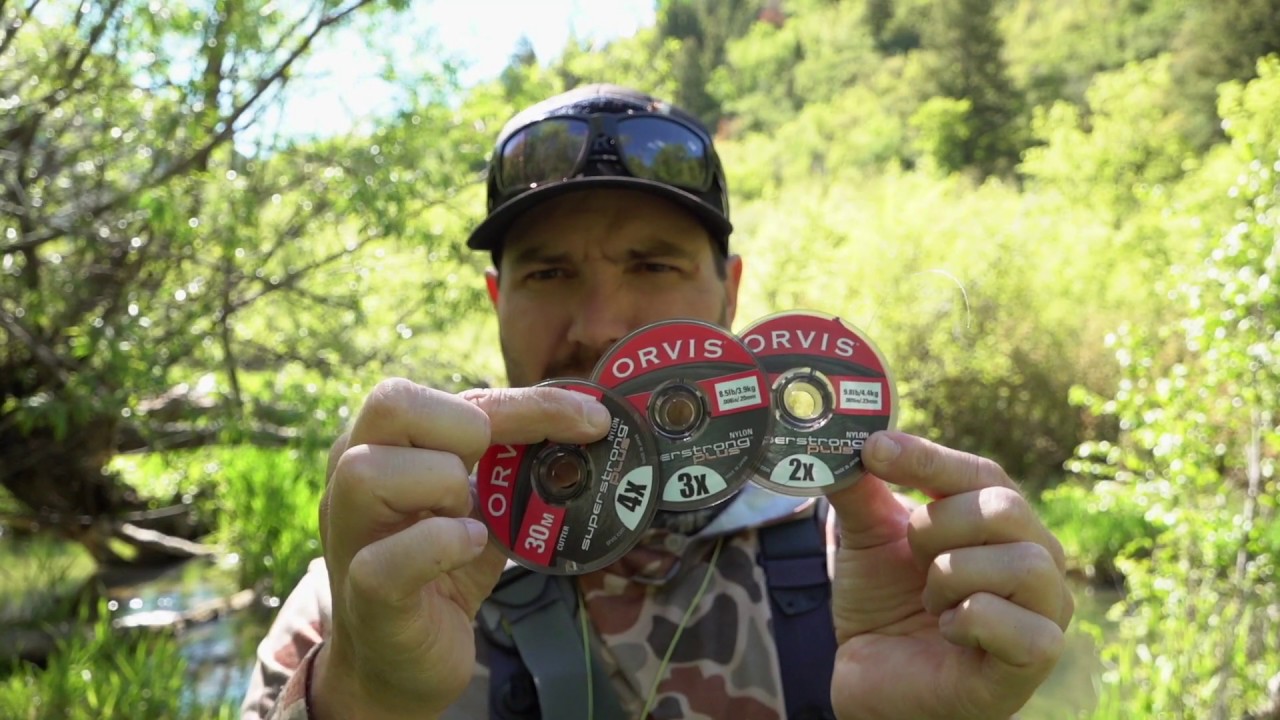Sometimes fly fishing can be frustrating. Have you ever been out on the river with your buddy and he seems to be able to catch so many more fish than you? You are using the same fly and you are fishing the same exact spot as he is, but he is really producing and are you are coming up with squat!
So what is going on? There is probably a reason why the fish are more attracted to your friend’s fly than they are to yours.
Here are a few fly fishing tips to help you increase your productivity and explain why you aren’t catching fish.
Contents
Reason #1: Drag
Fish, especially those who receive a good deal of fishing pressure, aren’t dumb. They can plainly see the difference between a naturally moving piece of food and one that moves in an artificial manner. Natural food moves along predictably in the water’s current. Fish expect to see their food move in these predictable ways. If you add the hindrance of tippet, leader and fly line to this equation, your odds of keeping the fly within these predictable movements becomes more difficult.
The alteration to the natural movements of your artificial fly as the result of it being attached to your fly line is called drag. Drag is probably the number one reason why you aren’t catching as many fish as you could be. As you cast out your fly, the natural movement of the water is causing your fly to move. The fly line, leader and tippet you are using are also being moved by the water.
When the line is pulled in an odd direction by the water, it moves the fly in such a way that looks drastically unrealistic to fish. Once a fish sees your fly move in this unrealistic manner, they will instantly recognize that something is not right and they will avoid your fly altogether.
Avoiding drag means perfecting the technique of mending. Mending is when you make constant alterations to the location and shape of your fly line in order to ensure that the fly moves in a natural manner. Mending is not extraordinarily difficult; it just takes a little knowledge and practice. Mending can make a world of difference.
You cannot see what your fly is doing under the water, which is why you appear to be doing the exact same thing as your more successful fishing buddy, without the same results. The difference is that he is properly mending. One of the best fly fishing tips anyone can give to you is to perfect the technique of mending!
Reason #2: You Are Spooking Fish
If you spook the fish during your approach they will all scatter to the wind and you will be fishing empty water. The worst part is that you will not know that you are fishing empty water because you will not see the fish scatter. Spooking fish is a common mistake of beginner fly fishermen, because they attempt to find the easiest place to cast from in order to reach their intended target zone.
What they don’t realize is that when they step into the water or move into a location that they think will provide them with a great casting location, they are actually spooking the fish that may reside in that specific location.
When those fish spook they take off and actually spook the fish in the targeted location as they go. Fish recognize when other fish are spooked and will often take cover at the same time. So you think that you are far enough away to avoid spooking the fish you intend to catch, but in reality you have already sent them swimming for the hills! Practice good stalking techniques, learn how to cast from less-than-perfect locations and avoid spooking any fish and you will see better results.
Reason #3: You Are Using The Wrong Flies
This is a simple mistake that can be easily overcome with experience and experimentation. If the fish are feeding on emerging insects and you throw a floating dry fly, odds are you aren’t going to have great luck.
You need to throw a pattern that closely matches the natural food and you need to put your artificial in the location of the water column that fish happen to be feeding in. This requires learning more about the types of natural insects in your area, the life cycles of those insects and how to recognize the different feeding behaviors of fish.
Reason #4: Not Enough Time on the Water
Becoming a really good fly fisherman takes experience, knowledge and developed skill. These are all things that require actual time on the water to develop. If two fishermen start as beginners and one fishes twice a week while the other is out five days a week, who do you think will develop more experience, knowledge and develop skills? Luckily this is an easy fix. If you want to catch more fish- spend more time on the water!
Fly fishing is very often a matter of the subtle things. Something as simple as properly mending your line, not spooking the fish and choosing the right fly can make all of the difference in your success.
Well, I hope this post helps you in your fly fishing adventures.

